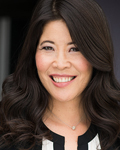
This resource was featured in the NeuroJobs Career Center. Visit today to search the world’s largest source of neuroscience opportunities.
Wendy Suzuki began her neuroscience career studying the hippocampus — specifically how patterns of electrical activity in the hippocampus allow us to form new long-term memories. Twenty years into her career, Suzuki switched her research focus to examine how exercise affects brain function, and how much and what kinds of exercise people need. Read this interview to learn about Suzuki’s journey and how your personal passions and curiosities factor into your career.
What led you to switch your research focus?
For many years, I was fascinated with memory, starting with brain plasticity. I studied memory from a behavioral aspect, looking at the effects of lesions from an anatomical standpoint, and spent most of my career to date studying the neurophysiology of memory.
At a certain point, I thought that was what I was going to study for the rest of my career. But then I became fascinated with another topic. While somewhat related, it has taken my research in very different directions.
My interest in researching exercise’s effects on the brain didn’t come from a talk that I saw, or a paper that I read. It came from me going to the gym, starting a new exercise program, and noticing how much exercise seemed to affect my mood, memory, and attention. I really noticed it when I was writing grants in my office. I thought, “This grant writing is going really well now. I wonder what I’m doing right.”
I realized that the causative effect — at least in myself — seemed to be exercise, and that made me go back to the neuroscience literature to see what we knew about the effects of exercise on the brain. I found exciting, growing literature. This new direction grew from that.
It was a side project in the lab for a while. I taught a new course on it and had undergrads wanting to do research projects on it, so I embraced that. Then at some point, I realized this was the question I wanted to spend my time on.
Did anyone else influence your decision or give you advice?
Nobody gave me advice because, for me, it was so clear that I had to make the change. I was so drawn to the exercise question, and that’s where I wanted to spend my time writing grants. You have to have a passion for your subject to spend all the time and effort finding and applying for grants.
I didn’t get advice specifically in the transition process — that was really a personal, internal decision. But when I was ready to tell my colleagues that I’d made this change, I got so much wonderful, positive support.
What has been most exciting – and most challenging – in this switch?
The most exciting thing is that I get to be a new assistant professor in a different area and appreciate it from a different standpoint. It’s like being a graduate student again and doing a rotation, but I am actually able to jump in full speed to do the research. That is also the scariest part, because I didn’t have a lot of models.
Things went through my mind like, “I’m not going to see my colleagues again because I’m not going to be going to those meetings.” That’s scary, not to mention that I had no reputation in this area, and it was very nice to have a reputation built up over 20 years with grants, papers, and people who knew my previous work.
This was all so scary — but exciting, because I recognized it as a real opportunity to practice the art of being a scientist in a brand-new area. I was challenging myself. It was like, “OK, you think you’re a scientist? Try doing it in this other area. See if you can do it.”
When I thought about it like that, I embraced it as a positive challenge, and I let those fears go. It’s been smooth sailing since I made that shift.
Do you have advice for neuroscientists who are getting started in their careers and looking for success?
The key is finding a topic that is truly fascinating to you. Pay attention to what you like to think about.
Learn how to develop good collaborations, but also good networks of advisers. Create a circle of advisers that may not be in your department, but in your general area, or even people outside of your area.
Something that’s helped me is noticing the skills my colleagues have that I admire. You don’t have to become their mentee to observe and benefit from their example. I’ve benefitted enormously from chair people of committees who run the meetings so beautifully. I take notes about what they do, how they do it, and then I use that.
In a field like neuroscience, where you have to be good at so many things — math, psychology, networking — it’s really beneficial to pay attention to who’s doing it really well.
Make every opportunity a learning opportunity.
Speaker






